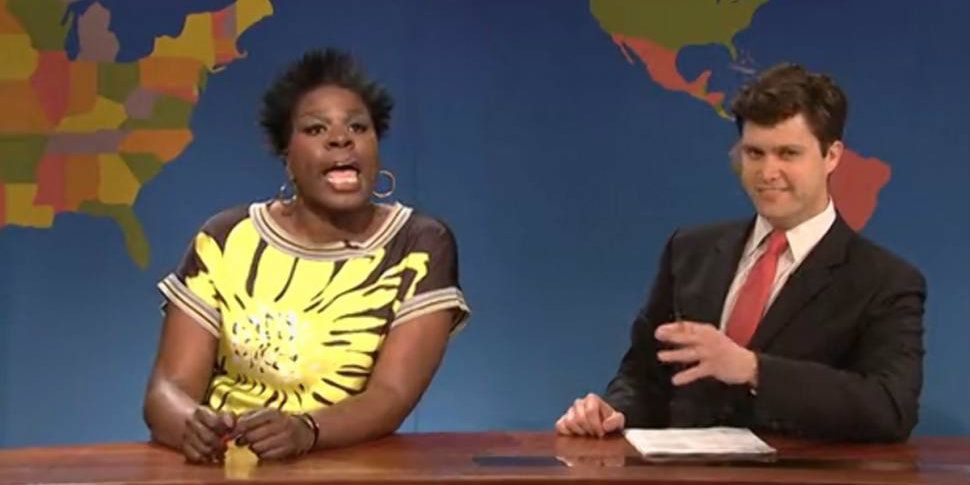On 'SNL' and the Degradation of Black Women's Beauty, Bodies and Histories

For some reason, far too many give comedians a pass when they, too, have the ability to perpetuate dangerous tropes that shape our consciousness. Comics, particularly those with large platforms, can teach us and stretch our thinking, but they can also wield their power to marginalize, stereotype and silence. And when called out, they often feel no need to offer more than "it's just jokes" to cover their irresponsibility.
This weekend, the joke was on Black women when comedian Leslie Jones, a Black woman herself, made her first appearance on 'Saturday Night Live.'
Jones lamented her lackluster love life and asserted that she would be the "number 1 slave draft pick" by making herself "most useful" and breeding enslaved "super babies."
"Back in the slave days, I woulda never been single," she explained. "I'm six feet tall, and I'm strong. I mean look at me. I'm a Mandingo."
Jones' bit fell flat. Not only was it unfunny, as has become the norm on the dying variety series, but I'm struck by the way that in two and half minutes Jones not only maligned the beauty of Black women but our history as well.
When Jones describes being matched with another slave to create "Lebrons," "Shaqs," and "Kobes," she is describing the practice of forced breeding
It has become common practice to engage the history of the slavery in the United States with a callousness to which other great tragedies are rarely subject. This is in large part because many of us are so uncomfortable with the brutality of the institution on which the United States was founded that we need to to consistently downplay its horrors.
By avoiding the truth and playing it up for laughs, those who reap the benefits of enslavement may view it as a historic aberration rather than an intentional scourge.
To twist the practice of slave rape into an accomplishment is to say that Black women are so unattractive and undesirable that we should take pride in being chosen for assault.
Though I find Jones' participation in the skit contemptible, I can't bring myself to loathe her. This woman's first appearance on a historic comedy program was a shuck and jive that demeaned her herself and her foremothers, but those jokes are rooted in a long history of the disqualification of black women's beauty. She simply used the tools she's been given. The mental and physical assaults Black women endured have for centuries been justified by our lack of femininity. Tall, muscular women like Serena Williams are perpetual targets.
While we celebrate Lupita Nyong'o's burgeoning status as a global beauty icon, I'm reminded that a single woman cannot undo that which has been deeply ingrained in the collective understanding of who Black women are. Lupita will continue to be praised as a outlier, while the trope of the ugly, desperate black woman persists.
If we could get the facts right about slavery or the ongoing sexual terrorism Black women face, the skit would have been far less detestable. But there exists a direct connection to the epidemic rates at which black women continue to experience sexual assault, to the fact that the historic degradation of our bodies is a punchline and not an atrocity.
I'm not laughing.
Kimberly Foster is the founder and editor of For Harriet. Email or Follow @KimberlyNFoster

No comments: